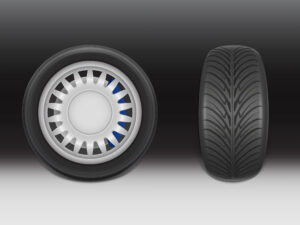Top Car AC Problems and How to Troubleshoot Them

When you experience car AC problems, it can make every drive uncomfortable, especially during hot weather. These issues are not just inconvenient; they can also indicate more significant problems that may lead to expensive repairs if left unchecked. In this guide, we’ll cover the most common car AC problems, their causes, and how you can troubleshoot them to get your AC working smoothly again.
From weak airflow to strange noises, knowing how to identify and fix car air conditioning problems can save you time and money. Plus, we’ll let you know when it’s best to seek professional help for a thorough AC repair. Read on to learn practical car AC repair tips that can keep your vehicle cool and comfortable.
Overview of Common Car AC Problems
The air conditioning system in your car relies on multiple components that can wear down over time. Here’s a breakdown of the 10 most common car AC issues, what causes them, and how you can troubleshoot these car AC problems to maintain cool airflow and comfortable rides.
1. Weak or No Airflow
Weak or no airflow from the vents is a common issue that many drivers face, often caused by blockages or malfunctioning components.
- Causes:
- Blocked air intake
- Faulty blower motor
- Clogged cabin air filter
- Troubleshooting Tips:
- Clean the Air Intake: Remove debris like leaves from the air intake area near the windshield.
- Inspect the Blower Motor: Test the blower motor’s speed and functionality, replacing it if necessary.
- Replace Cabin Air Filter: A clogged filter can obstruct airflow; replace it every 6–12 months.
2. AC Blowing Warm Air
Warm air coming from the AC is one of the most frustrating car AC problems, often due to refrigerant issues or compressor failure.
- Causes:
- Low refrigerant levels
- Damaged or blocked condenser
- Malfunctioning compressor
- Troubleshooting Tips:
- Refill Refrigerant: Low refrigerant is a frequent culprit; visit a professional to check and refill it.
- Clear the Condenser: Ensure the condenser is free from dirt and debris.
- Check Compressor Function: If the compressor fails to engage, a professional may need to repair or replace it.
3. Strange Noises When AC is On
Unusual noises when the AC is running, such as rattling or squealing, can indicate worn components or obstructions.
- Causes:
- Worn belts or pulleys
- Foreign objects stuck in the fans
- Compressor issues
- Troubleshooting Tips:
- Clear Debris: Remove any visible items from the intake or fan areas.
- Inspect Belts and Pulleys: Replace any worn belts.
- Compressor Check: Seek help if the compressor is noisy.
4. AC Has a Foul Odor
A foul, moldy smell from your AC can make driving unpleasant. This issue often arises from bacteria buildup in the vents or AC system.
- Causes:
- Mold and bacterial growth in the AC system
- Dirty or clogged air filter
- Excess moisture in the system
- Troubleshooting Tips:
- Replace the Air Filter: Replace dirty filters, which can trap bacteria.
- Use Antibacterial Spray: Clean vents and the system with a disinfectant.
- Run the Fan: After turning off the AC, run the fan to reduce moisture buildup.
5. Moisture on Floorboards
If you notice damp floorboards, it’s often due to a clogged drain line, a common car air conditioning problem.
- Causes:
- Blocked evaporator drain line
- Excessive moisture trapped in the AC system
- Troubleshooting Tips:
- Clear the Drain Line: Use a vacuum to remove any blockage.
- Dry Floorboards: Absorb moisture to prevent mold growth inside the cabin.
6. Intermittent AC Operation
AC that stops working intermittently is often due to electrical issues within the system, a challenging car AC problem to troubleshoot.
- Causes:
- Blown fuse or faulty relay
- Loose or damaged wiring
- Electrical faults
- Troubleshooting Tips:
- Check Fuses and Relays: Replace any blown fuses.
- Secure Wiring: Ensure connections are intact.
- Seek Professional Help: For persistent issues, consult a certified technician.
7. Fan Not Blowing Air
If the fan isn’t blowing air at all, it might be due to a malfunction within the ventilation system.
- Causes:
- Broken fan motor
- Electrical fault in the blower relay
- Blown fuse
- Troubleshooting Tips:
- Inspect Fan Motor: Replace the motor if necessary.
- Replace Blower Relay: Ensure the relay is functioning properly.
- Check Fuses: Replace any blown fuses related to the ventilation system.
8. AC Smells Like Gasoline
An uncommon but serious issue, gasoline-like odors from the AC indicate potential fuel leakage.
- Causes:
- Fuel leak from a broken seal
- Faulty fuel injector
- Troubleshooting Tips:
- Check for Fuel Leaks: Inspect the vehicle thoroughly for leaks.
- Seek Immediate Repair: Visit a professional for a comprehensive check.
9. AC Runs but Does Not Cool Properly
Sometimes, the AC blows cool air but doesn’t maintain a consistent temperature.
- Causes:
- Faulty expansion valve
- Low refrigerant
- Poor airflow
- Troubleshooting Tips:
- Test the Expansion Valve: The valve may need to be replaced if malfunctioning.
- Check Refrigerant Levels: Add refrigerant if needed.
- Clear Obstructions: Remove anything blocking airflow around the condenser.
10. AC System Overheats
An overheating AC system is typically due to poor airflow, compressor issues, or an overcharged refrigerant system.
- Causes:
- Blocked condenser or cooling fan
- Overcharged refrigerant
- Faulty compressor
- Troubleshooting Tips:
- Clear Condenser and Cooling Fan: Make sure there is no debris.
- Adjust Refrigerant: Have a professional adjust levels if overcharged.
- Inspect the Compressor: Replace the compressor if it’s overheating.
Preventive Maintenance Tips for Car AC
Maintaining your AC system regularly can prevent many common car AC issues. Here are some car AC repair tips to help:
- Change the Cabin Filter: Replace it every 6–12 months to avoid airflow issues.
- Monitor Refrigerant Levels: Low refrigerant leads to car air conditioning problems; ensure regular checks.
- Keep Air Intakes Clear: Removing debris from the intakes can improve airflow.
- Run the Compressor: Use the AC at least once a month, even in winter, to maintain the compressor.
- Schedule Professional Inspections: A thorough checkup every 6–12 months can identify potential issues early.
How to Diagnose Car AC Problems at Home
Diagnosing car AC problems at home can help you determine whether the issue is minor and easily fixable or if it requires a professional. Here are some simple steps to diagnose common car AC issues before heading to a repair shop:
- Check the Temperature: Start your car and set the AC to its coldest setting. Hold a thermometer near the AC vent to measure the air temperature. If it’s not significantly cooler than the outside air, this may indicate a refrigerant leak or a compressor issue.
- Listen for Unusual Sounds: Turn on the AC and listen for any unusual noises. Grinding or squealing noises often point to issues with the compressor or belts, while rattling may suggest debris in the fan.
- Inspect the Airflow: If the airflow is weak, check the air intake and cabin air filter for obstructions. This can prevent cool air from circulating effectively through the car.
- Look for Leaks: Check under the hood for any visible refrigerant or oil leaks. An oily residue around AC hoses may indicate a refrigerant leak, which requires professional attention.
- Monitor Smells: A foul odor from the AC often signals mold or bacteria in the system. This can usually be fixed by cleaning or replacing the cabin air filter.
Diagnosing car air conditioning problems at home can save you time, but some issues, like refrigerant leaks or electrical faults, are best handled by professionals.
Importance of Regular Car AC Maintenance
Regular maintenance is crucial to prevent car AC problems and extend the life of your vehicle’s air conditioning system. Here’s why consistent care matters:
- Improved Air Quality: A clean AC system improves the air quality inside your car by reducing dust, bacteria, and allergens.
- Better Cooling Efficiency: Regular maintenance helps maintain optimal cooling, especially during extreme temperatures.
- Cost Savings: Preventive care can save you money by identifying and fixing small issues before they turn into expensive repairs.
- Enhanced Resale Value: A well-maintained AC system can increase the resale value of your vehicle, as buyers appreciate vehicles in top working condition.
Regular AC checkups, including filter replacements and refrigerant top-ups, help prevent common car AC issues and ensure a comfortable driving experience.
When to Seek Professional Help
Not all car AC problems can be fixed on your own. Seek professional assistance if you encounter:
- Persistent warm air or lack of airflow
- Faulty or failing compressors
- Consistent electrical issues
- Refrigerant leaks that you cannot fix yourself
Professional technicians have the expertise to handle complex car air conditioning problems and ensure safe, effective repairs.
Call to Action: Get Professional Car AC Service with KwikFix Auto
If you’re experiencing any of these car AC problems, it’s time to call KwikFix Auto. Offering high-quality maintenance, doorstep service, and free pickup/drop options, KwikFix Auto is your trusted partner for all car air conditioning problems. Contact KwikFix Auto today at +91 9950345345 or book an appointment online to enjoy cool and comfortable drives year-round.
Frequently Asked Questions
Q1. What causes a car AC to blow hot air?
A1. Low refrigerant, compressor issues, or blocked condensers are common reasons.
Q2. How often should I change my AC’s cabin filter?
A2. Every 6–12 months to prevent clogs and odor issues.
Q3. Can I fix a refrigerant leak on my own?
A3. DIY repairs are not recommended for refrigerant leaks; consult a professional.
Q4. Why does my AC make noise when I turn it on?
A4. Worn belts or debris in the fan may be causing the noise.
Q5. How do I remove bad smells from my AC?
A5. Replace the air filter and use antibacterial spray to clean the vents.
Q6. Is water dripping from my AC normal?
A6. Yes, but water inside the cabin means the drain line is blocked.
Q7. What causes my AC to stop working intermittently?
A7. Electrical faults, blown fuses, or relay issues could be the cause.
Q8. Can I add refrigerant myself?
A8. It’s best handled by professionals to avoid overcharging the system.
Related Articles
Baleno Car Tyre Size | Best Tyre for Car | Best Tyre Inflator for Car | Car Tyre Pressure | Car Tyre Sizes List | Car Tyre Life | Off-Roading Tyres | Tyre Pressure Monitoring System for Car | How to Check Car Tyre Manufacturing Date





